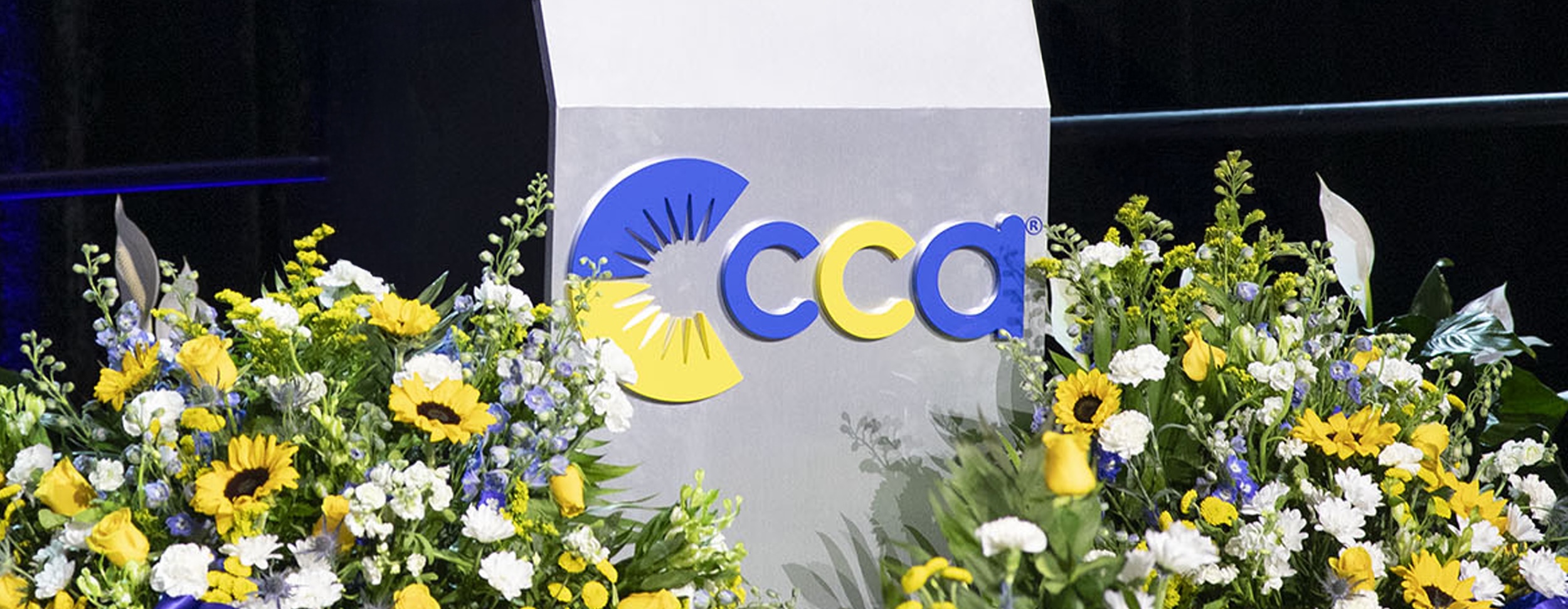Enrollment Now Open for Second Semester. Click Here
Enrollment Now Open for Second Semester. Click Here



The CCA curriculum includes core courses in math, science, language arts/English and social studies for every grade. CCA also offers Honors and Advanced Placement (AP) Courses.
CCA offers a wide range of engaging elective courses available as early as kindergarten. Learners can explore a world language like Spanish or Chinese, tap into their creativity with Digital Arts or 3D Modeling, or prepare for a career with courses like Entrepreneurship or Sports & Entertainment Management.
CCA’s curriculum is always evolving and growing. The latest developments and best practices in education are monitored and incorporated into lessons. The program is designed to provide learners with the latest subject matter content, aligned with state and national standards.
Course Title
Course Type
Grade
Subject
Duration
French 1
Elective
9 – 12
World Language
Year
French 1 an introductory course for learners who want to study the French language and culture. Learners will be introduced to basic grammatical structures and vocabulary of the French language using everyday examples. They will read, write, speak, and listen to examples of French conversation. French-speaking countries, their culture, and their etiquette will be explored.
*NCAA Eligibility Center approved course
French 2
Elective
9 – 12
World Language
Year
French 2 builds upon the foundational skills of French 1. Learners will expand their French vocabulary and communication skills by reading, writing, speaking, and listening to French conversation and reading texts based on daily life experiences. Learners focus on verb conjugations to enhance grammar skills. French cultural practices, etiquette, and natural resources will be explored. The successful French 2 learner will produce language in audio recordings and in writing. Due to the cumulative nature of language studies, a minimum grade of 75% (C) in French 1 is recommended.
*NCAA Eligibility Center approved course
French 3
Elective
9 – 12
World Language
Year
French 3 is designed to continue the study of French language and Francophone culture from previous French course courses. Learners will expand their vocabulary and grammar skills by reading, writing, speaking, and listening to French in everyday situations and experiences. Learners will also gain an in-depth understanding of cultural and social practices and artwork of the Francophone world. The successful French 3 learner will produce language in audio recordings and in writing. Due to the cumulative nature of language studies, a minimum grade of 75% (C) in French 2 is recommended.
*NCAA Eligibility Center approved course
French 4
Elective
9 – 12
World Language
Year
In French 4, learners will develop an authentic and practical understanding of the French language and culture. Learners will express thoughts, feelings, and opinions in French within real-life situations and scenarios. Learners will absorb new concepts in context as they gain proficiency in various listening, speaking, reading, and writing activities. The successful French 4 learner will produce language in audio recordings and in writing. Due to the cumulative nature of language studies, a minimum grade of 75% (C) in French 3 is recommended.
*NCAA Eligibility Center approved course
Game Design 1A
Elective
9 – 12
Technology
Semester
In Game Design 1A, learners who love coding and video games can tap into their creative and technical skills as they learn about the many aspects of designing video games. They learn about video game software and hardware, gaming platforms, necessary technical skills, troubleshooting, internet safety techniques, and the history of gaming.
Game Design 1B
Elective
9 – 12
Technology
Semester
In Game Design 1B, learners will build upon the foundations of Game Design 1A. The course begins with an introduction to trends in video games and gaming systems. They will then be introduced to the development cycle game designers work through to take a video game from the planning to the implementation stages. Finally, learners will explore topics like animation and sound to create an all-encompassing gaming experience for players.
Geology
Elective
9 – 12
Recommended Grade: 10, 11, 12Science
Semester
Geology is a semester course offering learners a fundamental understanding of Earth system science as well as the general geology of Pennsylvania. It will lead the learners toward a clear perspective of the Earth’s internal structure. The nature, origin, and distribution of Earth’s resources such as energy, mineral, and water technologies used to locate, extract, and process these resources are also highlighted. This course will include the formation and identification of rocks and minerals; types of volcanoes and how and why they erupt; glaciers, deserts, beaches, mountains, islands and the ocean floor. Human influence on Earth’s spheres, processes, resources will also be explored.
*NCAA Eligibility Center approved course
Geometry
Core
9 – 12
Recommended Grade: 10Mathematics
Year
Geometry is a comprehensive study of geometric concepts. Real-world situations and scenarios are highlighted throughout the course for learners to make connections of how math is used in their daily life. Learners will begin the course with a review of the basic elements of geometry such as lines and transformations. Properties and theorems related to triangles are a heavy emphasis throughout this course. Learners will also work with quadrilaterals, circles, and find the area of geometric figures. Logical thinking and reasoning are introduced and practiced through the completion of proofs.
*NCAA Eligibility Center approved course
German 1
Elective
9 – 12
World Language
Year
German 1 is an introductory course that will acquaint learners with basic German vocabulary as it relates to daily life and activities such as hobbies, food, directions, and countries. This course will focus on introducing the basics of conversation in the German language by building grammar skills and concentrating on the four main aspects of the language: speaking, listening, reading, and writing. Engaging lessons with real-life scenarios, flashcards, audios, and videos are integrated through the course.
*NCAA Eligibility Center approved course
German 2
Elective
9 – 12
World Language
Year
German 2 is designed to build upon skills learned in German 1 and prepare learners to communicate further using reading, writing, speaking, and listening. Learners in this course will further their grammar skills to be able to communicate in other verb tenses and build skills that require more explanation. Learners in this course will also build upon thematic vocabulary dealing with housing, traveling, shopping, professions, etc. They will also expand their knowledge of how to communicate in different time frames and how to add detail to conversation. Learners will complete hands-on activities and innovative assignments to achieve the Can-Do statements laid out in the coursework. In addition, they will learn about life and culture in the German-speaking countries. The successful German 2 learner will produce language in audio recordings and in writing. Due to the cumulative nature of language studies, a minimum grade of 75% (C) in German 1 is recommended.
*NCAA Eligibility Center approved course
Enrollment Now Open for Second Semester. Click Here